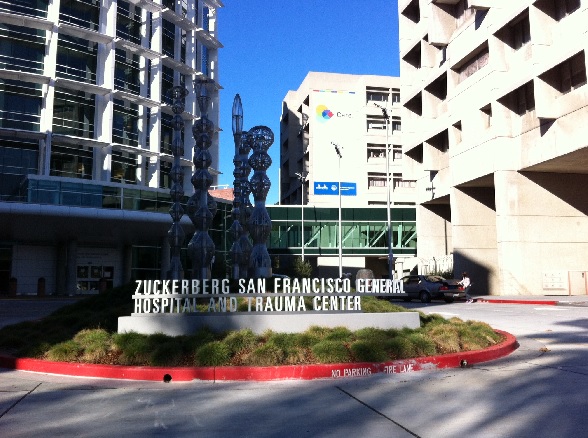
The current flap over Supervisor Aaron Peskin’s proposal to remove Mark Zuckerberg’s name from San Francisco General Hospital because of Facebook’s failure to protect privacy rights and other travesties in their misguided pursuit of profitability can distract us from some of the larger issues at stake.

Is it sufficient to censure a “bad” billionaire while giving a pass to a “good” billionaire, like Marc Benioff, whose name is now enshrined in the UCSF Benioff Children’s Hospital? Benioff most recently became a hero in unlikely places when he not only supported but financed a successful Proposition C campaign to tax wealthy businesses (including his own) to support homeless programs in San Francisco.
More fundamentally, how did we get to this era when venerable public institutions like San Francisco General Hospital and the University of California, San Francisco rely in part on the largesse of wealthy benefactors to survive, to the point they are willing to hand over their names?
We are living in a time when philanthropy and charity are commonly accepted salvos to help people survive the historically unprecedented extremes of wealth and poverty in the United States. However, a generous billionaire who helps support homeless programs does not confront the more basic question about why there are so many homeless people in the first place. Similarly, support for a public institution like San Francisco General Hospital, which serves people without insurance that private (for-profit and nominally non-profit) hospitals avoid, does not confront the question why anyone should not have ready access to health care.
In the longer view, the struggles for assuring at least the basic necessities of life for everyone took form (in the United States) during the New Deal and its legacy, which shaped US politics for roughly 40 years and relied on the public sector as the basis for those guarantees. Social Security, unemployment insurance, Medicare and Medicaid, etc. were part of that legacy. Even Richard Nixon had proposals for guaranteed annual income and national health insurance.
Similarly, the era of neo-liberalism, introduced by Reagan—who famously said that government is not the problem, it isthe problem—launched a political culture for the next roughly 40 years when even a nominal Democrat like Bill Clinton ended welfare as we know it. The evisceration of the public sector as a guarantor of the basic necessities of life is the hallmark of this era and the current regime.
Fortunately, there is now growing support for reviving the role of the public sector through movements like Medicare for All, universal free public education including college and federal living wage. Those are the kind of struggles that matter now and in the long run.
So, how does this relate to the issue of naming hospitals? By all means, get rid of the Zuckerberg name (he can join Priscilla Chan in anonymity). Their contribution of $75 million, while substantial, was roughly 7 percent of the total cost of rebuilding the hospital, which hardly justifies re-naming the hospital after him. In that same spirit, it’s fair to raise a similar question about UCSF Benioff Children’s Hospital. If they are truly generous in their intent, why do they need their names emblazoned on their beneficiaries?
The private naming of public institutions is homage to an era that is better endured than celebrated. We have to reclaim the fundamental importance of the public as our domain for the common good.

